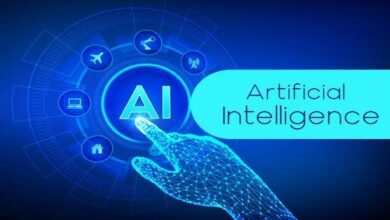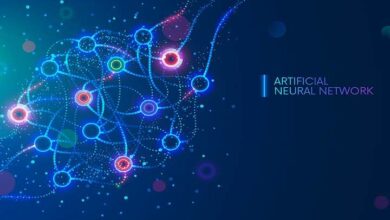
Artificial intelligence, or AI, is becoming increasingly pervasive in our lives. From the voice assistants in our homes to the self-driving cars on our roads, AI is changing the way we live and work. But as AI technology advances and becomes more sophisticated, there are concerns about whether it poses a threat to humanity. Is there reason to fear artificial intelligence?
The potential for AI to be used for harm is not a new concern. Science fiction has long depicted AI as a threat to humanity, from the rebellious machines of The Terminator to the superintelligent AI of The Matrix. But as AI becomes a reality, these concerns are no longer confined to the realm of fantasy.
One of the key concerns is the potential for AI to be used for malicious purposes.
For example, AI could be used to create convincing fake videos, known as deepfakes, that could be used to spread disinformation or blackmail individuals. AI could also be used to create autonomous weapons that could make decisions about who to target without human intervention. These concerns have led to calls for regulation and oversight of AI development.
Another concern is the potential for AI to be biased. AI is only as good as the data it is trained on, and if that data is biased, then the AI will also be biased. This could have serious consequences, such as perpetuating racial or gender discrimination, or making decisions based on inaccurate or incomplete information. It is important to ensure that AI is developed and trained on diverse and representative data sets to avoid these issues.
Artificial Intelligence (AI) technology advances
A related concern is the potential for AI to replace human workers. As AI technology advances, it is becoming increasingly capable of performing tasks that were previously done by humans. This could lead to job losses and economic disruption, particularly in industries that rely heavily on manual labor. While some argue that AI will create new jobs and industries, there are concerns about the speed and scale of the disruption.
Most fundamental concern about AI
Perhaps the most fundamental concern about AI is the potential for it to become uncontrollable. As AI becomes more advanced, it may be capable of making decisions on its own, without human intervention. This could lead to unpredictable or dangerous outcomes, particularly if the AI is designed for a specific task, such as managing a nuclear power plant or a military operation. There are concerns that once AI reaches a certain level of intelligence, it may be difficult or impossible to control.
Many potential benefits to AI
Despite these concerns, there are also many potential benefits to AI. AI has the potential to improve healthcare, transportation, and many other industries, and could help solve some of the world’s most pressing problems, such as climate change and poverty. AI could also help us better understand the world and ourselves, by analyzing data on a scale that is impossible for humans to do alone.
The key to realizing these benefits while avoiding the potential dangers of AI is to ensure that it is developed and used responsibly. This includes investing in research and development to ensure that AI is transparent, explainable, and accountable. It also means ensuring that AI is developed and trained on diverse and representative data sets to avoid bias, and that appropriate safeguards are put in place to prevent malicious use.
Perhaps most importantly
It means ensuring that the development and deployment of AI is done in an ethical and socially responsible way. This includes considering the potential impact of AI on human rights, as well as its impact on the economy and the environment. It also means ensuring that the benefits of AI are shared equitably across society.
One way to ensure that AI is developed and used responsibly is to involve a broad range of stakeholders in the process. This includes not only AI developers and researchers, but also policymakers, civil society organizations, and members of the public. By working together, we can ensure that AI is developed in a way that benefits society as a whole, while minimizing the risks.
Effect Of artificial intelligence?
Artificial intelligence (AI) is rapidly transforming many aspects of our lives, including the way we work, learn, communicate, and even think. As AI technology advances, its effects are becoming increasingly profound and widespread. Here are some of the key effects of artificial intelligence:
- Automation: One of the most significant effects of AI is automation. AI is capable of performing tasks that were previously done by humans, and as a result, it is increasingly being used to automate many jobs. This is particularly true in industries that rely heavily on repetitive tasks, such as manufacturing and logistics. While this can lead to job displacement, it also has the potential to increase efficiency and productivity.
- Personalization: AI is also being used to personalize our experiences. For example, online retailers use AI to recommend products based on our past purchases and browsing history, and streaming services use AI to recommend movies and TV shows based on our viewing history. This has the potential to make our experiences more enjoyable and efficient, but it also raises concerns about privacy and the potential for manipulation.
- Decision-making: AI is also being used to improve decision-making in a wide range of industries. For example, in healthcare, AI is being used to diagnose diseases and develop treatment plans, while in finance, AI is being used to predict market trends and manage investments. This has the potential to improve outcomes and reduce costs, but it also raises concerns about the potential for bias and the impact on human judgment.
- Creativity: While AI is often associated with automation and efficiency, it also has the potential to enhance creativity. For example, AI is being used to generate music and art, and to assist in the creative process by suggesting new ideas and approaches. This has the potential to democratize creativity and make it more accessible to a wider range of people.
- Education: AI is also being used to transform education. AI-powered tools are being used to personalize learning, provide feedback to students, and even to grade assignments. This has the potential to make education more accessible and effective, but it also raises concerns about the potential for bias and the impact on human interaction.
- Healthcare: AI is also transforming healthcare. AI is being used to diagnose diseases, develop treatment plans, and improve patient outcomes. It is also being used to analyze large datasets to identify patterns and trends that can help researchers develop new treatments and cures. This has the potential to improve health outcomes and reduce costs, but it also raises concerns about privacy and the potential for bias.
- Security: Finally, AI is being used to improve security. AI-powered tools are being used to detect fraud and cyber threats, and to monitor and analyze video footage for security purposes. This has the potential to improve safety and security, but it also raises concerns about privacy and the potential for misuse.
Conclusion
The effects of artificial intelligence are wide-ranging and profound. AI has the potential to transform many aspects of our lives, from the way we work and learn to the way we communicate and think. While AI offers many benefits, it also raises concerns about job displacement, bias, privacy, and the impact on human interaction and judgment. It is important to develop and use AI in a responsible and ethical way to ensure that its benefits are maximized while minimizing its potential risks.



